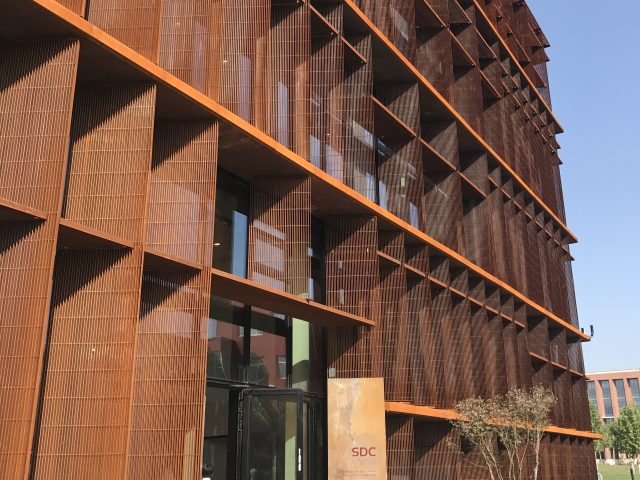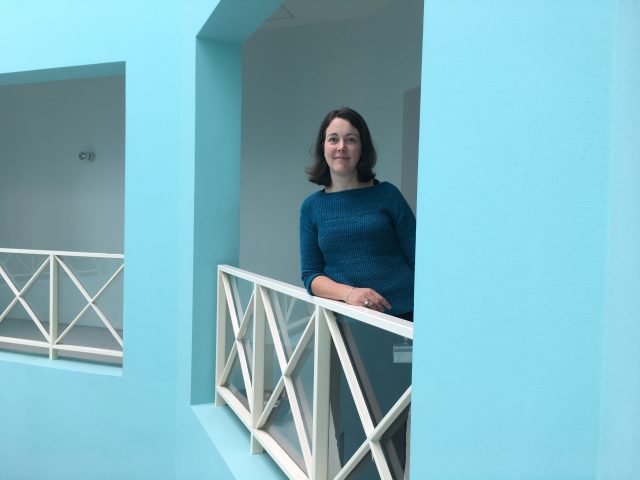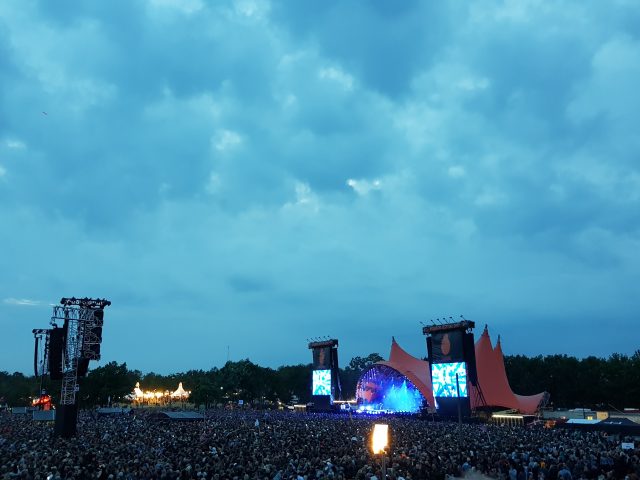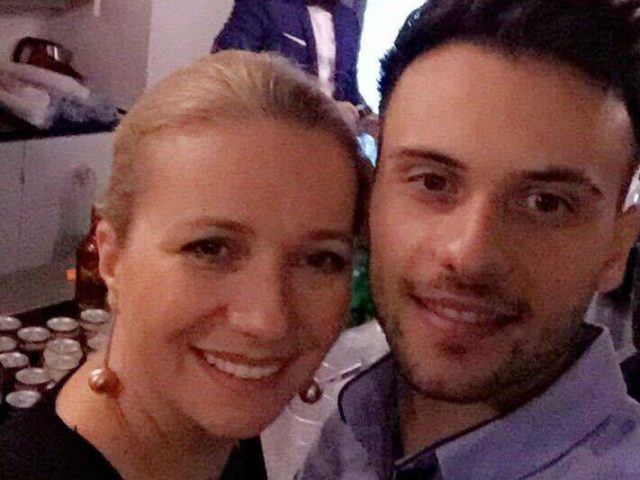From the books to the field: CBS goes to Uganda

(Photo: Sarah Jensen, Business and Development Studies, CBS)
24 CBS students switched out their CBS classrooms for the African heat, when they went to Uganda for field research as part of their Master's program in Business, Language and Culture.
More often than not, CBS students complain about the lack of a more practical approach to the subjects studied in class. However, sometimes it happens that CBS professors bring in initiatives with the aim of immersing students in a more hands-on context, enabling a ‘learning by doing approach’.
This was the case for 24 lucky CBS students, who had the incredible opportunity to travel to Uganda as a part of their elective course “Field Study: Entrepreneurship and Private Sector Development”.
The field trip that was specifically designed for Master’s students of Business, Language and Culture took place during this past spring and lasted for three weeks.
The project has been running for a few years now, each year organised and supervised by professors Thilde Langevang and Søren Jeppesen from the Department of Intercultural Communication and Management, in collaboration with staff and students from Makerere University Business School (MUBS) in Kampala, Uganda.
In Kampala, the students had a unique chance to do field research in the context of developing countries and handled topics concerning social enterprises, the informal sector, micro-finance institutions, youth entrepreneurship and much more.
They worked in groups of four with two students from CBS and two students from MUBS. Each group was free to choose a topic they wanted to research, which allowed the students a fair amount of freedom and a more realistic approach to the issues.
I was curious to discover the impressions of the students who took part in the project had and how they thought it contributed to their learning experience and life in general. Two of the twenty-four students, Anna Stoller (MSc Diversity and Change Management) and Madlin Schulte (MSc Business and Development Studies), shared their experiences with us.

Research from A to Z
Anna and Madlin were very satisfied by the field course because they felt that it really taught them a lot in terms of how to conduct research from A to Z. Students had a few lectures at CBS before leaving and then a few more during their stay at MUBS. Anna and Madlin were matched with two MUBS students, and together they chose social enterprises as their research topic.
“The process was very straightforward,” they say, “we started looking for which social enterprises were present in Kampala and then we basically started ‘gate crashing’, knocking on their headquarters doors and asking for interviews.”
They gathered a lot of data and had to write a report at the end of their stay and a second report once back in Copenhagen. “It was a lot of work, really a lot of work” continues Madlin, “but the supervision by our professors Thilde and Søren was very good. We probably got more supervised hours than we will ever get for our Master Thesis!” MUBS professors also supervised the work of the students and were described as being very open minded and incredibly helpful.
The girls perceived the project as an incredible learning experience, and that they definitely want to work in this field in their future career. For them, it was just the perfect opportunity. Academically, they now feel more prepared in regards to their Master Thesis, as they learned how to effectively approach a research issue and how to keep themselves motivated in complex settings.
Challenging field work
There are however challenges in doing field work in developing countries, as the students often had to deal with outdated phone numbers, missing addresses, and transport difficulties.
In regard to this, Anna feels that her biggest takeaway from participating in the field study was how to be resilient, both in her studies and in life: “For me, it was the first time I worked so closely together with someone from such a different background and culture, and it is not just a university project, it is actively working together and doing real research. And there are a lot of backlashes when you do research” she says, “but you just have to keep on trying and do it again and again and again. At some point, it will work.”
Madlin also adds that it can be shocking to see extreme poverty for the first time. Even though both girls have been traveling in Sub-Saharan Africa before, they could definitely tell that for a couple of other students it was the first time being in an extremely poor country. However, they realized that no matter how many times you have encountered these kinds of social settings, you will always feel a bit uncomfortable, but you just need to embrace it, while keeping in mind that you are the foreigner.

Incredibly easy working together
Despite the deep cultural differences, Anna and Madlin say that working with their two MUBS partners went incredibly smooth, partly because they were not the typical Ugandan students you would normally meet. They had been traveling and working a lot abroad and therefore had international experience. The girls did not face any of the stereotypes that you would expect to see in such a context. On the contrary, they were the ones arriving late at meetings!
Anna adds that their MUBS partners were always giving their best and brought a lot of motivation into the project. Most of MUBS students are working full time whilst studying, and sometimes they even have kids and family as well. This was the given case for Anna and Madlin’s teammates, who had to take three weeks off from work just to participate in the project. Amazingly enough, they still managed to be 100% committed throughout the whole research.
The Ugandans, who the students met, were perceived as very friendly and open minded people. All the companies the girls visited were genuinely interested in their research activity. A characteristic they noticed often and that was highly appreciated was that “whenever we had private issues, like for example getting a SIM card for your phone and such, Ugandans were always so helpful and would stick by your side until you had solved the issue. That is really how they are!” says Madlin.
During their investigation, Anna and Madlin got to meet several social entrepreneurs and one of them, Sophia, particularly caught their attention. Sophia is Canadian and the founder of one of the companies the girls visited. It is called ‘Afripads’ and it produces reusable menstrual pads for women.
I wanna be like her one day!
“Sophia is really a power woman” says Madlin and continues, “when we came out of that interview, which lasted one hour and half, we just thought ‘I wanna be like her one day!’” Anna continues to say, “She founded the company back in 2010 and she has been there, in Uganda, doing it ever since. She was just so motivated and so inspiring, you could tell she was giving 120% of herself and really believing in what she did.”
Besides studying and working on their research, some of the students also decided to travel during the weekends they had off and after the project was done, some of them spent an extra week traveling Uganda or the bordering countries such as Rwanda and Tanzania. This allowed some of the students to combine studying and traveling, making the overall experience culturally enriching from different perspectives.
Anna and Madlin strongly encourage the future generations of BLC students to apply for the field study, as it was a remarkable experience for them. A chance that at the moment doesn’t happen ordinarily at Copenhagen Business School. For this reason, they make a plea to CBS on behalf of the students so that more projects and collaborations of this kind can take place in the future to allow for a more integrated and practical learning journey.





































































































































Comments